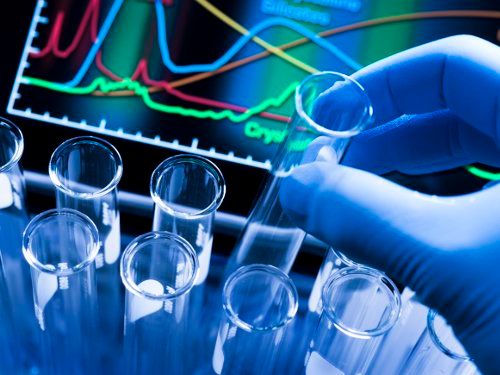Grapefruit Seed Extract Guide Examines Methods of Analysis to Detect Synthetic Antimicrobial Compounds
The new Laboratory Guidance Document from the nonprofit Botanical Adulterants Program is said to be the first detailed review of laboratory analytical methods of identifying synthetic compounds in grapefruit seed extract products.
Photo © iStockphoto.com/Pgiam

The nonprofit Botanical Adulterants Program, created by the American Botanical Council (ABC; Austin, TX), the American Herbal Pharmacopoeia (Scotts Valley, CA), and the University of Mississippi’s National Center for Natural Products Research (University, MS), announced the release of a new Laboratory Guidance Document that analyzes current methods of identifying synthetic antimicrobial compounds in products that are labeled as containing grapefruit (Citrus paradisi) seed extract. This new Laboratory Guidance Document is the third publication from the program that examines the adulteration of grapefruit seed extract, and is the first detailed review of laboratory analytical methods of identifying synthetic compounds in grapefruit seed extract products.
According to the Botanical Adulterants Program, grapefruit seed extracts have no known history of use in traditional herbal medicine and are marketed as supplements with antimicrobial activity and as a natural preservative for personal care and cosmetic products. As the Laboratory Guidance Document details, grapefruit seed extract products are often adulterated with synthetic antimicrobials. According to the document, some claim that certain methods of preparing grapefruit seed extract, such as boiling, distilling, and treating distillate with ascorbic acid, hydrochloric acid, and ammonium, produce microbial compounds “resembling benzethonium chloride from the flavonoids in the grapefruit seeds.” The authors, however, state that no synthetic or natural chemical pathways are known to change the natural constituents of grapefruit seed extract into antimicrobial compound.
Current analytical methods for testing grapefruit seed extract include such techniques as high-performance liquid chromatography (HPLC) with ultraviolet (HPLC-UV) or mass spectrometric (HPLC-MS) detection, thin-layer chromatography (TLC), gas chromatography-mass spectrometry (GC-MS), or nuclear magnetic resonance (NMR) spectrometry. Stefan Gafner, chief science officer, ABC, commented in a press release: “The changing nature of the antimicrobial compounds used to adulterate various batches of grapefruit seed extract complicates the selection of an appropriate analytical method. A non-targeted approach, which means the use of a method where the compounds to be analyzed are not known, is required for the detection of these adulterants. Due to their ability to identify the presence of synthetic microbicides at low concentrations, GC-MS and HPLC-MS are particularly well-suited to meet the challenge.”
The aim of this Laboratory Guidance Document is helping quality-control personnel choose the best techniques and methods for determining the extent of botanical adulteration, in this case for products labeled with grapefruit seed extract. More broadly, the Botanical Adulterants Program aims to identify botanical adulteration in U.S and global markets and to seek out potential tools to detect adulteration. The document was prepared by John Cardellina, PhD, chief technical consultant and associate editor of the Botanical Adulterants Program, and has been peer-reviewed by the ABC-AHP-NCNPR Botanical Adulterants Program partners and by five additional experts from both independent contract analytical laboratories and the herb and dietary supplement industry.
In addition to this Laboratory Guidance Document, the program also published a 2012 review of scientific papers on the adulteration of grapefruit seed extract in ABC’s journal HerbalGram. In March 2017, it published a Botanical Adulterants Bulletin covering all the available evidence documenting concerns about and charges of grapefruit seed extract adulteration with antimicrobials.
ABC founder and executive director Mark Blumenthal said in a press release: “As we have noted previously, adulteration of grapefruit seed extract with synthetic industrial disinfectant chemicals is a particularly egregious practice. We believe that this should be the subject of appropriate regulatory action by the FDA.”
In the past, the program has also covered adulteration in herbs like black cohosh and ginkgo, among others, and bilberry fruit extract and pomegranate. In addition, the program publishes a quarterly e-newsletter, the Botanical Adulterants Monitor, highlighting scientific publications related to botanical authenticity. All of these publications are available on the program’s website.
Also read:
Nutritional Outlook's 2016 Best of the Industry, Industry Leader: Botanical Adulterants Program
Dietary Supplements: New Testing Tools to Catch Botanical Adulteration
Researchers Propose New Method to Detect St. John's Wort Adulteration










